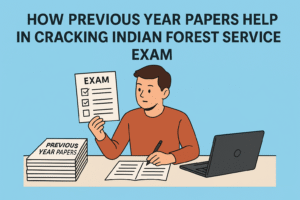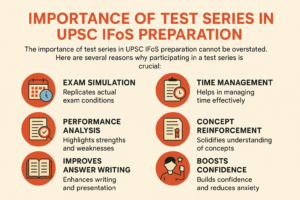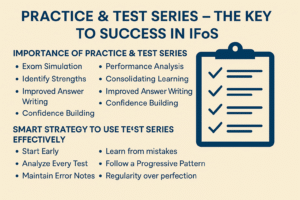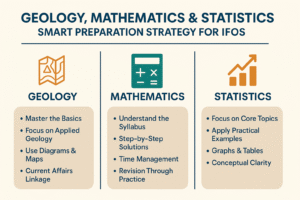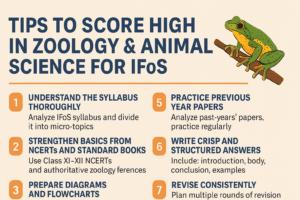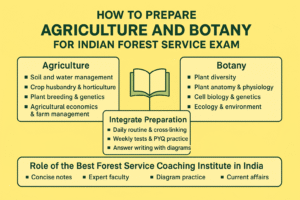Preparing for the UPSC Civil Services Examination (CSE) requires not just hard work but the right resources and booklists. With an ocean of study material available, aspirants often get confused about what to read and what to avoid. The golden rule for UPSC preparation is to read limited sources multiple times rather than too many books once.
This article provides a complete booklist and resource guide for UPSC Prelims and Mains, covering all subjects, along with FAQs to help aspirants streamline their preparation.
WHY THE RIGHT BOOKLIST MATTERS
Clarity and Focus – Prevents wastage of time on irrelevant material.
Standard References – Ensures aspirants follow UPSC-quality sources.
Consistency – Reading the same limited books multiple times helps retention.
Overlap Between Prelims & Mains – Good booklists cover both stages effectively.
RESOURCES & BOOKLISTS FOR UPSC PRELIMS
1. History
Ancient & Medieval India: NCERTs (Class 6–12), R.S. Sharma, Satish Chandra.
Modern India: Spectrum’s A Brief History of Modern India by Rajiv Ahir.
Culture: Nitin Singhania’s Indian Art and Culture.
2. Geography
NCERTs (Class 6–12).
Certificate Physical and Human Geography – G.C. Leong.
Oxford/Orient Black Swan Atlas.
3. Polity
Indian Polity by M. Laxmikanth (must-read).
NCERT (Class 11 – Indian Constitution at Work).
4. Economy
NCERTs (Class 11–12).
Indian Economy by Ramesh Singh.
Economic Survey & Budget Highlights.
5. Environment & Ecology
Shankar IAS Environment Book.
NCERT Biology (Class 12 – last four chapters).
Reports from IPCC, UNFCCC, MoEFCC.
6. Science & Technology
NCERTs (Class 6–10 Science).
Current affairs from The Hindu, Indian Express, PIB.
7. Current Affairs
The Hindu / Indian Express (daily newspaper).
PIB (Press Information Bureau) releases.
Monthly Current Affairs Magazines (Vision IAS, Insights IAS, ForumIAS).
RESOURCES & BOOKLISTS FOR UPSC MAINS
1. General Studies Paper I (History, Geography, Society)
Same sources as Prelims for History & Geography.
Society – NCERT Sociology Class 11 & 12.
2. General Studies Paper II (Polity, Governance, IR)
M. Laxmikanth for Polity.
ARC Reports (2nd ARC).
Current events on governance and international relations from newspapers.
3. General Studies Paper III (Economy, Security, Environment)
Ramesh Singh for Economy.
Economic Survey & Budget.
Shankar IAS Environment Book.
Current affairs on technology and security issues.
4. General Studies Paper IV (Ethics, Integrity & Aptitude)
Lexicon for Ethics.
Ethics, Integrity & Aptitude by Subba Rao.
Case studies from Vision IAS / Insights IAS.
ESSAY PAPER RESOURCES
Practice essays on current issues, social problems, governance, economy, and ethics.
Read essays of toppers available online.
Refer to newspaper editorials for ideas and structure.
OPTIONAL SUBJECT BOOKLISTS
Since every optional has its own resources, here are some popular ones:
Public Administration – Mohit Bhattacharya, Rajni Goyal & Arora, Prasad & Prasad.
Geography – Savindra Singh, Majid Husain, G.C. Leong, Atlas.
Sociology – Haralambos & Holborn, Ritzer, IGNOU Notes.
PSIR (Political Science & IR) – O.P. Gauba, Andrew Heywood, Subhra Ranjan Notes.
Anthropology – P. Nath, Nadeem Hasnain, IGNOU Notes.
OTHER IMPORTANT RESOURCES
Previous Year Question Papers (PYQs) – A must for understanding exam trends.
UPSC Test Series (Prelims + Mains) – Vision IAS, Vajiram, ForumIAS, Insights IAS.
Government Reports – NITI Aayog, ARC Reports, Economic Survey.
Online Sources – PIB, PRS India, IDSA, Down To Earth magazine.
TIPS TO USE RESOURCES EFFECTIVELY
Stick to limited sources, revise multiple times.
Make concise notes for quick revision.
Integrate current affairs with static subjects.
Practice answer writing daily.
Revise at least 3–4 times before the exam.
FAQS ON RESOURCES & BOOKLISTS FOR UPSC
Q1. HOW MANY BOOKS ARE ENOUGH FOR UPSC PREPARATION?
Around 1–2 standard books per subject are sufficient, along with NCERTs and current affairs.
Q2. ARE NCERT BOOKS REALLY IMPORTANT FOR UPSC?
Yes, NCERTs provide conceptual clarity and form the foundation of UPSC preparation.
Q3. WHICH IS THE BEST NEWSPAPER FOR UPSC ASPIRANTS?
The Hindu and Indian Express are most recommended.
Q4. HOW IMPORTANT IS CURRENT AFFAIRS FOR UPSC?
Extremely important — they form the basis for both Prelims and Mains, especially in GS-II & GS-III.
Q5. IS COACHING MATERIAL ENOUGH TO CRACK UPSC?
No. Coaching material is supplementary. Standard books and NCERTs are irreplaceable.
Q6. HOW MANY TIMES SHOULD I REVISE BOOKS?
At least 3–4 revisions before Prelims and Mains.
Q7. SHOULD I FOLLOW MULTIPLE SOURCES FOR CURRENT AFFAIRS?
Stick to one newspaper + one monthly magazine. Following too many sources leads to confusion.
FINAL WORDS
The resources and booklists for UPSC preparation are vast, but the key is to stay focused, limit sources, and revise multiple times. From NCERTs to standard books, current affairs to test series, each resource plays a crucial role in building strong fundamentals and analytical skills.
Remember: It’s not about how many books you read, but how well you revise and apply them.


